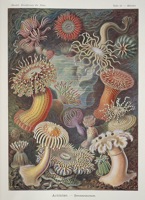Difference between revisions of "Natural history"
m (Text replacement - "http://" to "https://") |
|||
| Line 1: | Line 1: | ||
[[File:lighterstill.jpg]][[File:Natural_history.jpg|right|frame]] | [[File:lighterstill.jpg]][[File:Natural_history.jpg|right|frame]] | ||
| − | *Date: [ | + | *Date: [https://www.wikipedia.org/wiki/16th_Century 1567] |
==Definitions== | ==Definitions== | ||
*1 : a treatise on some aspect of [[nature]] | *1 : a treatise on some aspect of [[nature]] | ||
| Line 7: | Line 7: | ||
*3 : the [[study]] of [[natural]] objects especially in the field from an amateur or popular point of view | *3 : the [[study]] of [[natural]] objects especially in the field from an amateur or popular point of view | ||
==Description== | ==Description== | ||
| − | '''Natural history''' is the [[scientific]] [[research]] of [[plants]] or [[animals]], leaning more towards the [[observational]] than [[experimental]] [[methods]] of [[study]], and [[encompasses]] more [[research]] that is published in magazines than in [[academic]] [[journals]]. Grouped among the [[natural sciences]], Natural history is the systematic [[study]] of any category of [[natural]] objects or [[organisms]]. That is a very broad designation in a world filled with many narrowly [[focused]] [[disciplines]], so while modern natural history dates historically from [[studies]] in the [ | + | '''Natural history''' is the [[scientific]] [[research]] of [[plants]] or [[animals]], leaning more towards the [[observational]] than [[experimental]] [[methods]] of [[study]], and [[encompasses]] more [[research]] that is published in magazines than in [[academic]] [[journals]]. Grouped among the [[natural sciences]], Natural history is the systematic [[study]] of any category of [[natural]] objects or [[organisms]]. That is a very broad designation in a world filled with many narrowly [[focused]] [[disciplines]], so while modern natural history dates historically from [[studies]] in the [https://en.wikipedia.org/wiki/Greco-Roman_world ancient Greco-Roman world] and then the [https://en.wikipedia.org/wiki/Muslim_Agricultural_Revolution medieval Arabic world] through to the scattered European [[Renaissance]] scientists working in near [[isolation]], today's field is more of a cross [[discipline]] umbrella of many specialty [[sciences]] that like geobiology have a strong multi-disciplinary [[nature]] combining scientists and scientific knowledge of many specialty sciences.[https://en.wikipedia.org/wiki/Natural_history] |
[[Category: The Sciences]] | [[Category: The Sciences]] | ||
Latest revision as of 01:22, 13 December 2020
- Date: 1567
Definitions
- 1 : a treatise on some aspect of nature
- 2 : the natural development of something (as an organism or disease) over a period of time
- 3 : the study of natural objects especially in the field from an amateur or popular point of view
Description
Natural history is the scientific research of plants or animals, leaning more towards the observational than experimental methods of study, and encompasses more research that is published in magazines than in academic journals. Grouped among the natural sciences, Natural history is the systematic study of any category of natural objects or organisms. That is a very broad designation in a world filled with many narrowly focused disciplines, so while modern natural history dates historically from studies in the ancient Greco-Roman world and then the medieval Arabic world through to the scattered European Renaissance scientists working in near isolation, today's field is more of a cross discipline umbrella of many specialty sciences that like geobiology have a strong multi-disciplinary nature combining scientists and scientific knowledge of many specialty sciences.[1]
